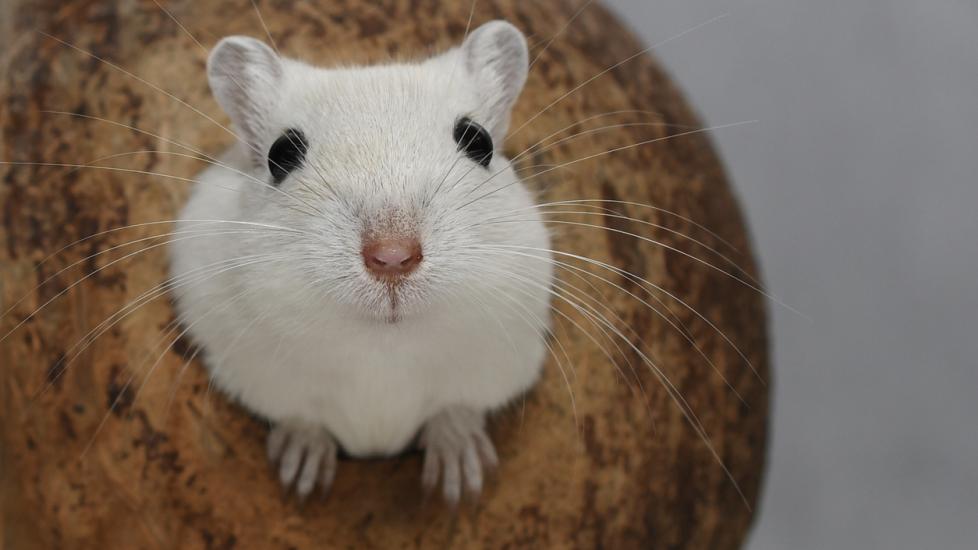Nervous System Disorders in Gerbils
Epilepsy in Gerbils
Epileptic seizures are related to disorders of the nervous system, however, they may occur in the absence of any nervous system disease. They tend to manifest in gerbils that are suffering from stress, improper handling, or from a sudden change in living environment. In many cases a propensity to seizures is passed down from the parents; it is thought to be genetically based, in some cases.
Fortunately, epileptic seizures will not usually cause severe or permanent harm to the gerbil.
Symptoms and Types
Signs of epilepsy often make an appearance around the time when a gerbil reaches puberty, 2-3 months of age. The seizure may be mild to severe and will recur at frequent intervals until the gerbil is about six months of age. The frequency and severity of the seizures typically begin to wane after the age of six months. Mild seizures usually have the gerbil displaying a trance-like behavior with twitching of ears and whiskers. Gerbils with severe seizures, other other hand, will suffer from convulsions, stiffening of muscles, and jerking of the whole body.
Causes
Genetic predisposition is a leading cause of epilepsy. Other potential factors include:
- Sudden stress
- Improper handling
- Sudden change in living environment (e.g., move to a new home or location, cage change)
Diagnosis
Your veterinarian will most likely use differential diagnosis, a process that is guided by a deeper inspection of the apparent outward symptoms, ruling out each of the more common causes until the correct disorder is settled upon and can be treated appropriately. You will also need to provide a thorough history of your gerbil's health leading up to the onset of symptoms, with as much familial history as possible.
Treatment
In most cases, the only treatment that may be administered for epileptic seizures is a mild muscle relaxant, and this only in severe cases where the gerbil is suffering as a result of frequent and intense seizures. Otherwise, the only other option is to wait until the gerbil grows out of the seizures as it ages.
Living and Management
The severity of seizures usually decreases after the gerbil has reached the age of six months. To reduce the risk of seizures in your pet gerbil, keep it in a quiet and stress free environment, away from the heavily trafficked areas in the home, and avoid making any unnecessary changes in your gerbil's cage. Make sure that the gerbil is being handled gently and with care -- you may need to restrict access from young children until both the child and gerbil are old enough for handling -- and consult with your veterinarian on the proper handling of epileptic gerbils.
As much as possible, give your gerbil appropriate play materials and ways in which it can keep itself physically occupied and exercised by creating a calm but simulating natural environment to keep it happy and occupied.
Prevention
Handling your gerbil frequently in the first three weeks of its life will go a long way toward making it comfortable with being handled, so that it does not react with stress when you pick it up. If you have any questions as to proper handling of a gerbil, consult with someone who is familiar with gerbils, and talk to a veterinarian who show you proper handling methods.
References
Featured Image: iStock.com/neumiez
